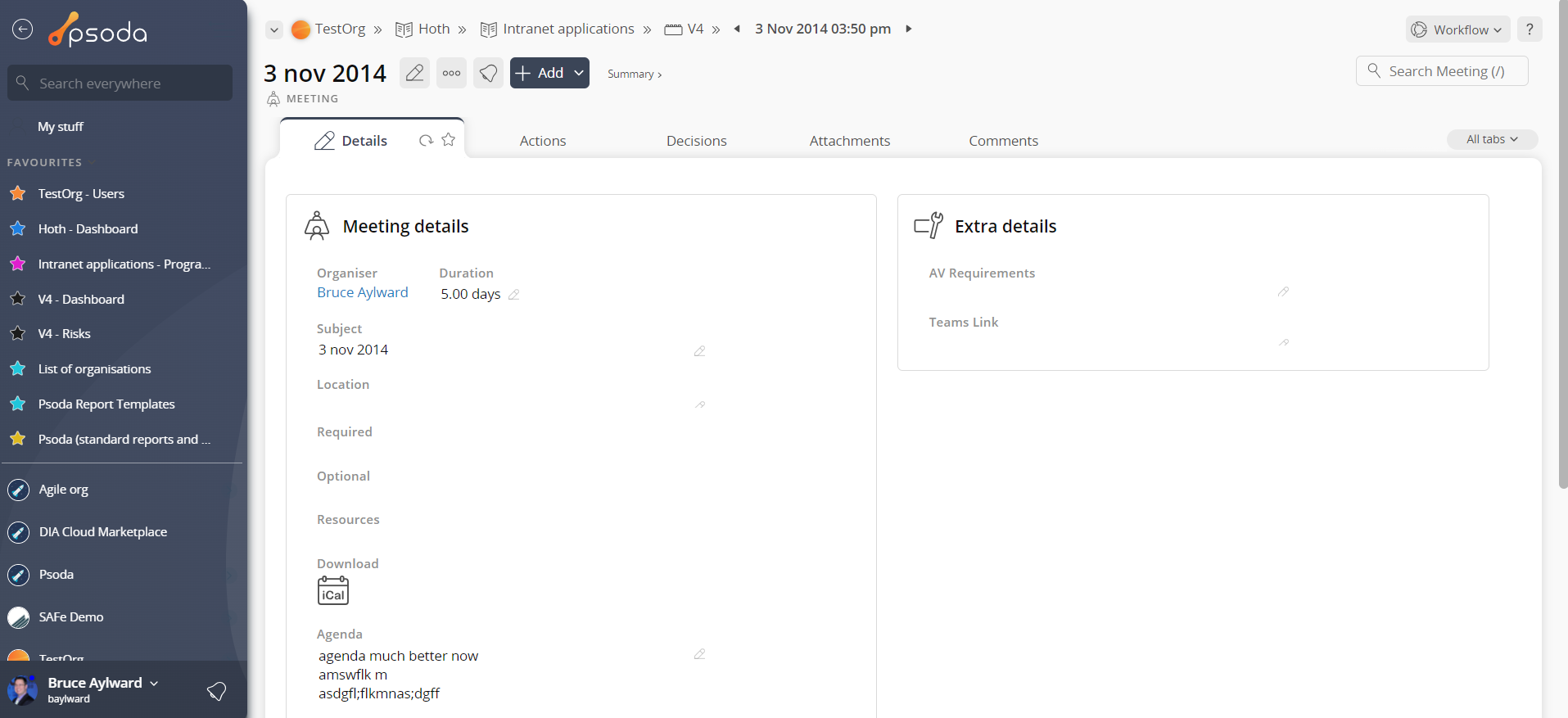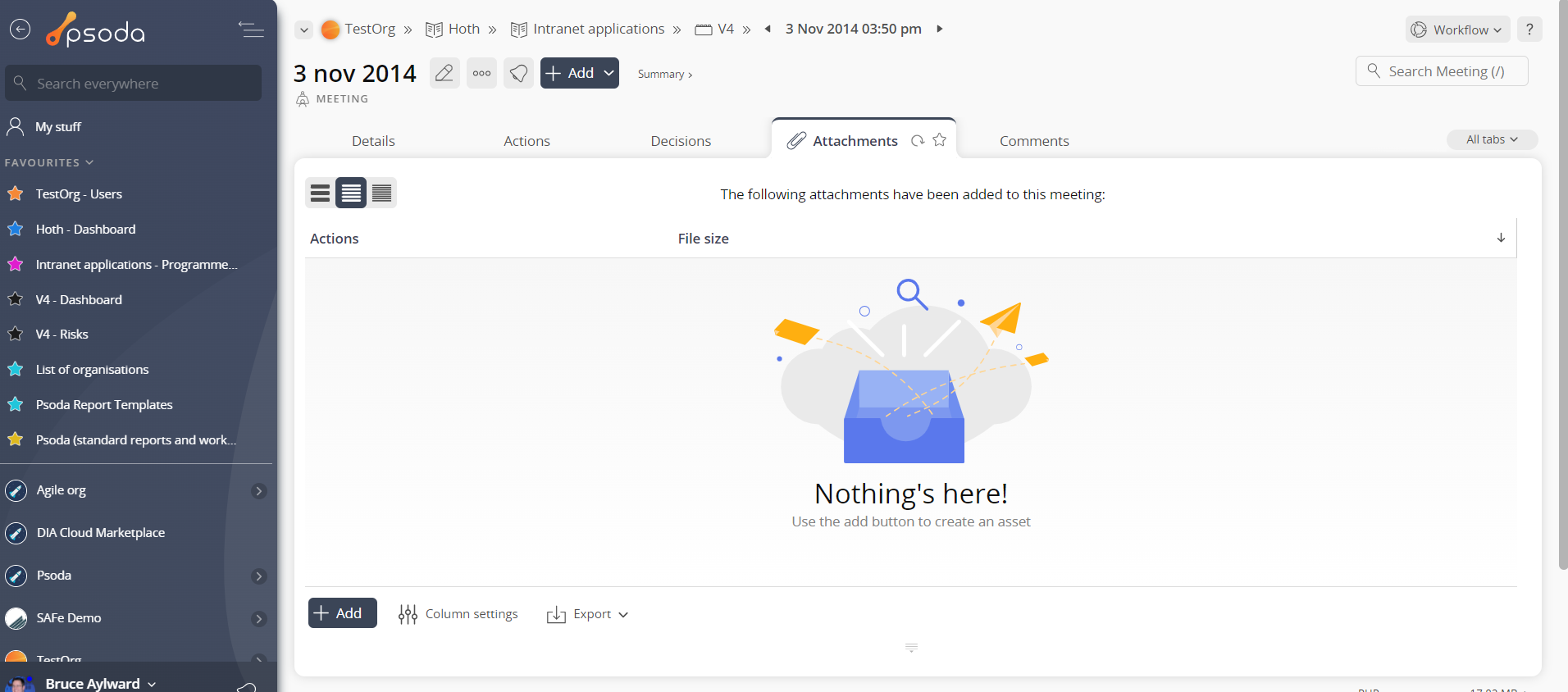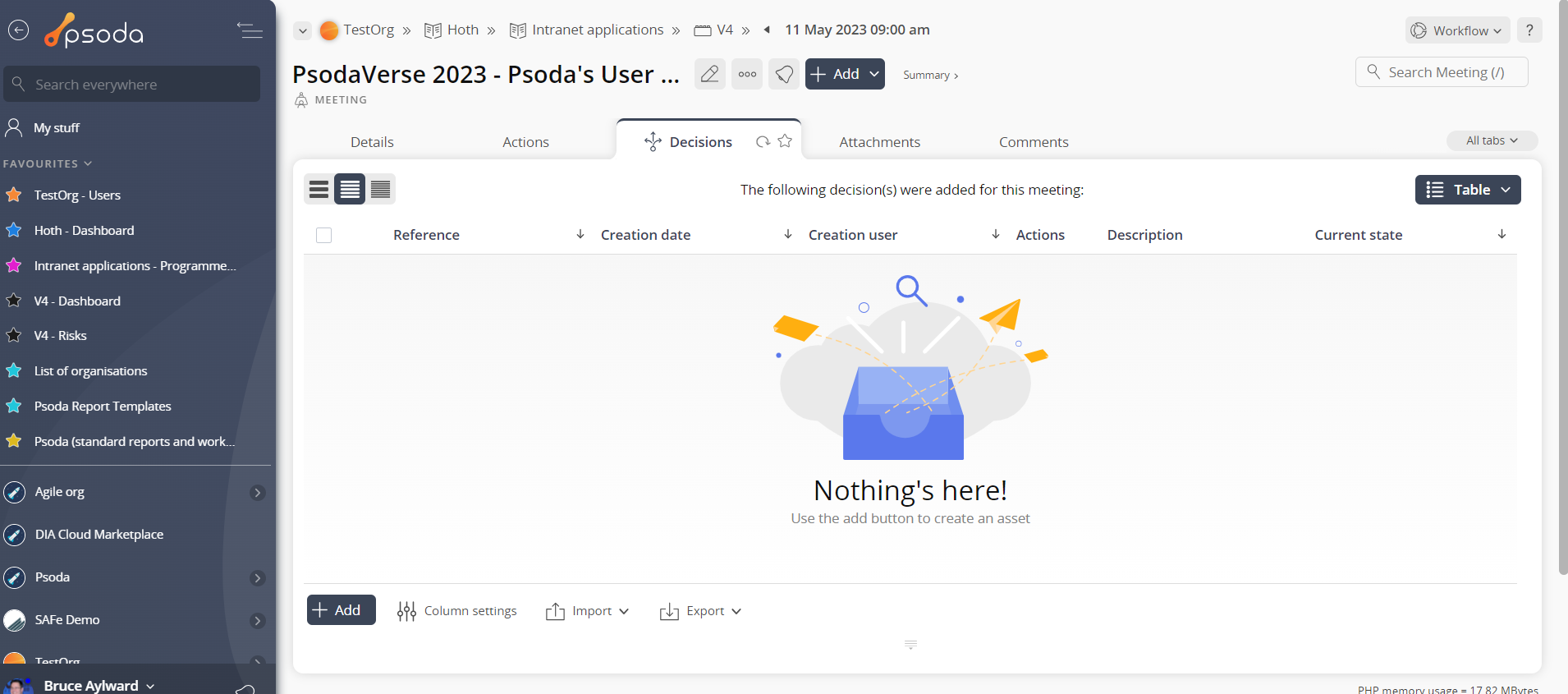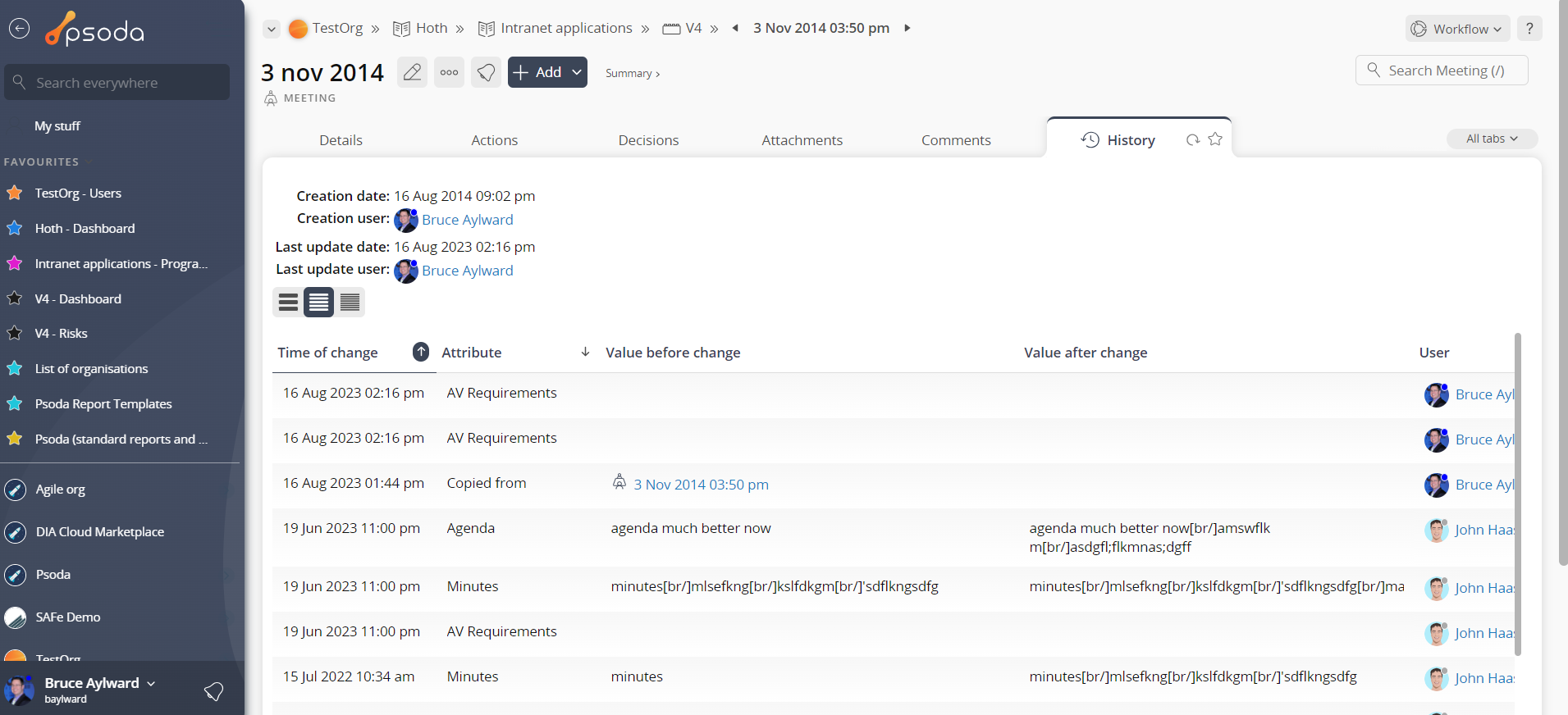
Figure 1 – Meeting view page
The top header area at the top of the top header area allows you to Actions
Actions
This tab shows an asset listing of all of the actions registered for this meeting, as shown in Figure 2. By default, this table will present you with a number of details about the actions such as it’s reference, description, priority and due date to name a few. If you click on the reference link of the listed action, you will navigate to that action’s view page.
From the Actions column of this actions table, you can act on individual actions by 
Figure 2 – Meeting actions tab
Note that you can customise your table view by clicking the Attachments
Attachments
This tab shows an asset listing of all of the attachments that have been added to this meeting, as shown in Figure 3. By default, this table will present you with a number of details about the attachments such as the file’s name, attachment type, view the version and access a download link.
From the Actions column of this attachments table, you can act on individual attachments by 
Figure 3 – Meeting attachments tab
Note that you can customise your table view by clicking the Comments
Comments
This tab shows an asset listing of all of the comments that 
Figure 4 – Meeting comments tab
Note that you can customise your table view by clicking the Decisions
Decisions
This tab shows an asset listing of all of the decisions that have been added to this meeting, as shown in Figure 5. By default, this table will present you with a number of details about the decisions such as it’s context, title, description, user’s who agreed to it and it’s current state, to name a few. If you select the link in the decision column, you will navigate into that decision’s view page.
From the Actions column of this custom fields table, you can act on individual custom fields by 
Figure 5 – Meeting decisions tab
Note that at the bottom of the table you can add more decisions manually or
import multiple from a CSV file, or customise your table view by clicking the
edit button to show or hide certain information. From here you can also export this list to
Excel or
CSV files.
 Details
Details
This tab shows the details for the selected meeting such as it’s agenda and minutes, as shown in Figure 6.

Figure 6 – Meeting details tab
These fields may allow for inline editing although these permissions may be linked to your access rights. If you feel that you should have access to some of these permissions, contact your System Administrator.
 History
History
This tab shows shows some basic history of the meeting, as shown in Figure 7. By default, this tab will present you with a number of details about the meeting’s history such as the creation date, creation user, last update date and last update user. If the meeting has been changed then this section will also show a table of all the changes that has been made, including the date of each change, the field changed, the value before the change and the user who made the change.
Figure 7 – Meeting history tab
Note that you can customise your change table view by clicking the edit button at the bottom of the change table. Here, you can also export this list of changes to
Excel or
CSV files.